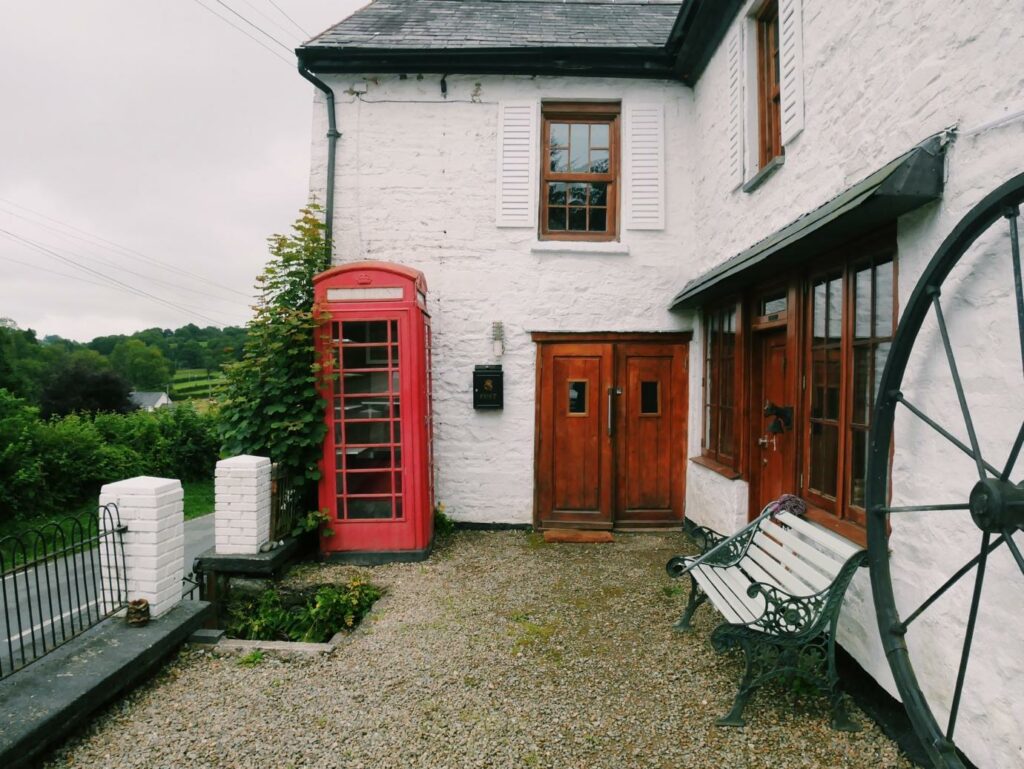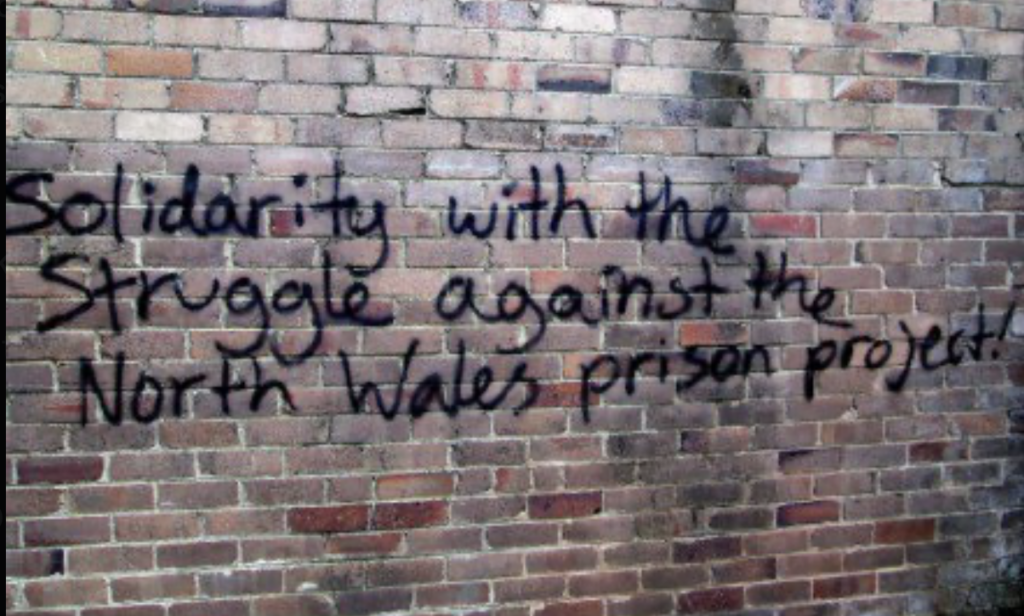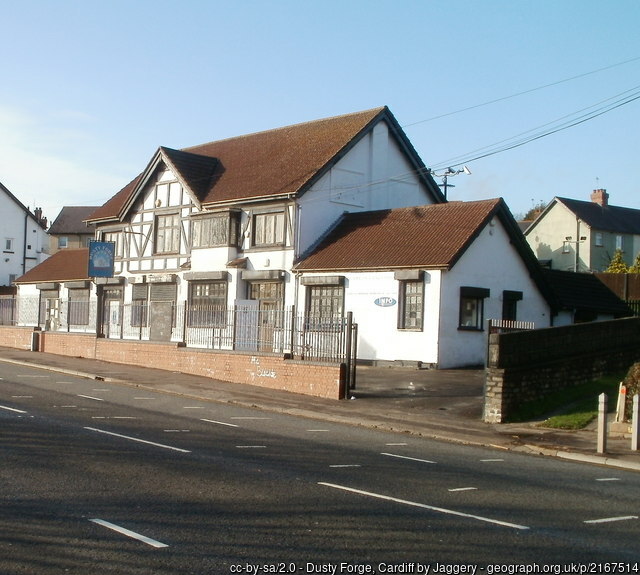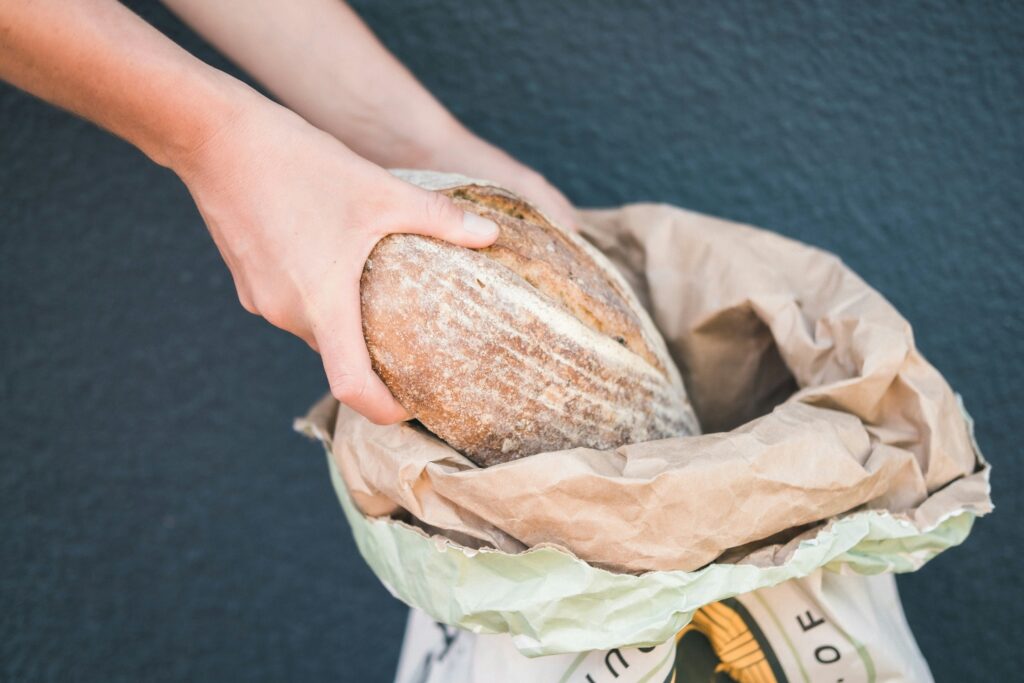Gwenno Robinson explores the origins and history of her great-great-aunt Lucy’s village shop in Capel Dewi, Ceredigion
“Dim rhyfedd bod fy iaith yn rhwdi. Tri person ar y clôs bore ma a’r tri yn Saeson. Cofion, Lucy” *, signs off an old, crumpled letter on the kitchen table. It’s dated June 2005 and addressed to Mam. *(“No wonder my language is rusting. Three people on the courtyard this morning: English, every one of them. Best, Lucy.”).
Once, the people of Capel Dewi would have been able to recognize the author from the handwriting alone. It’s the writing of my great-great-aunt Lucy, best known as ‘Lucy Siop’ to those in the Llandysul area.
In the previous week, I had just been to visit my Anti Lucy for the first and last time in Capel Dewi, a rural village in West Wales, which sits three miles from Llandysul. It’s where generations of my family come from. My aunt Lucy was the last person to run the village shop and post office in its original site, hence the name, ‘Lucy Siop’. The next time I see her, she’s over 90 years of age and in a care home a few villages over, where she’ll spend the final years of her life.
The letter captures how Lucy was aware of the influx of English people into her village. In the letter, she is alluding to the influx of English people into the village. The community where she had spent her entire life was rapidly changing before her very eyes. Lucy was writing in 2005. Had she anticipated what was to come?
When Lucy was born in 1919, around 90% of Ceredigion’s population spoke Welsh. Today, a century on, the number stands at around 45%. Gwenda can count on two hands the number of Welsh speakers who remain in the village.
Nearly twenty years later, and it’s the morning of the 28th of June, 2023. The Cambrian News has just published a story, titled: “1800s home for sale was once a bakery and a post office – and comes with a hot tub”.
The news spreads like wildfire, leaping from one family group chat to another. It sparks outrage over breakfast tables. Coffee cups slam. Noses turn in disgust. Moments later, I stumble into the kitchen.
“… and it come with a hot tub!” exclaims one relative. “A hot tub!”. It’s repeated a third time, for dramatic effect.
“Bydde’ Anti Lucy’n troi yn ei bedd!”. “Aunt Lucy would turn in her grave!”.
“A shutters? Ar dŷ traddodiadol Cymreig!”. “And shutters? On a traditional Welsh house!”.
I slowly gather that Anti Lucy’s shop is for sale again. It’s undergone quite the makeover since it was last for sale, hence the fourfold increase in price. Italian-style wooden shutters have been fixed to the exterior. Glass French doors. A tiered garden, with two garden lodges, a studio and a hot tub.
And, of course, it now goes under the name of ‘The Old Bakehouse’.
Returning to Capel Dewi
I arrive in Capel Dewi on a Thursday in late July. The air carries a heaviness that can’t be fully explained by the eerie afternoon fog. I walk around for an hour or so, and don’t pass a single soul. I can’t help but think of my predecessors, who walked these same steps years previously. I’ve arranged to speak to Gwenda, who’s lived in the village for 30 years. I’m hoping she can tell me more about my great-great aunt Lucy.
The door to Gwenda’s house is wide open. It seems the people of Capel Dewi don’t believe in locks. I poke my head in, unsure as to what the protocol is. Thankfully, she spots me from her kitchen and welcomes me in with open arms for a paned. I immediately find myself warming to her. She tells me how she’d had a gut instinct from the start that I was related to Lucy.
The kettle whistles, and boiling water is poured into the tebot. Gwenda reaches into a cupboard and produces a plate full of Welsh cakes, buttered. “I have to confess; I didn’t make them” she says.
She’s been finding it hard to bake now that she’s the only one living in the house. Her husband, John, passed away last June. He lived in Capel Dewi his whole life, and Gwenda joined him from Pontsiân once they got married.
When I ask her about Lucy, her eyes sparkle as she remembers how good her cooking was: ‘She could make better pastry than anyone’. Lucy’s shop was also a bakery, and she delivered the bread herself – either carrying it in a sack on her back or using her trusty Morris Minor. Gwenda remembers how she used to send John up the road to buy bread, and he would have eaten the crust before he got back to the house, despite it being only a few minutes down the road.
Times are changing
It doesn’t take long for us to get on to the topic of change. Capel Dewi used to be an entirely Welsh-speaking village. When Lucy was born in 1919, around 90% of Ceredigion’s population spoke Welsh. Today, a century on, the number stands at around 45%. Gwenda can count on two hands the number of Welsh speakers who remain in the village.
The village is rapidly ageing too. Gwenda can only think of two families with young children in the village. The 2021 census reported that Ceredigion saw an increase of 10% in people over 65 while experiencing a decrease of 22% in people under the age of 65. Like in many other rural areas, large numbers of the young people moving to live in cities, is a real concern for the residents of Capel Dewi.
Gwenda takes another sip of tea, and glances to the window, where the steeple of the church pokes into the skyline. Attendance at the church has drastically fallen. Later that day, I walk up the hill to visit Capel Bethel, where Lucy was a regular visitor. The front gate is locked shut. I later find it on Rightmove for just short of £100k.
“Just like everywhere else”, Gwenda says with a tired smile.
She’s right. These changes aren’t unique to Capel Dewi. The most recent census reported the lowest ever proportion of Welsh speakers across Wales. Only last week, the Welsh Affairs Committee opened an inquiry into the impact of population change in Wales, looking at the factors that are driving young people to leave.
But, she admits, not all of the change has been for the worse. She’s found some common ground with some of the English residents who’ve moved in. At the end of the day, they too want a community.
Capel Dewi’s school closed its doors in 2010. It opened in 1914, and it’s where generations of my family learned how to read and write. Recently, new life has come into the building. A volunteer workforce repainted the walls and installed a kitchen, transforming the place into a community centre. It’s home to a cinema, a monthly lunch club, an annual Christmas dinner and most recently, a community-owned shop: Siop Dewi.
Discussions and debates that drive Wales forward.
Join Wales’ leading independent think tank.
After Lucy retired in 1991, the community had to travel to the nearby town for their daily supplies. Through the help of the Plunkett Foundation and a grant from the Lottery Village SOS fund, two-part time project coordinators were employed to get Siop Dewi up and running. It opened in 2013 and has gone from strength to strength ever since.
I tentatively ask about ‘The Old Bakehouse’. Gwenda sighs, “Ma pethe’n newid yma, ti’n gweld” – things are changing here, you see.
“You know what they’re like with shutters”, she smiles wrly. I smile lightly, remembering how my own family had also commented on the European shutters that were added to the exterior of the old shop, a traditional Welsh building.
On my way back to the car, I pass the old shop for the last time. A man has appeared. Paintbrush in hand, he’s varnishing the new decking that has been installed. What used to be an overgrown grass verge has been landscaped into three neat tiers.
I pause for a second. “Sorry to disturb you, are you the owner of the Old Bakehouse?”, I shout up at him.
As my luck has it, he is. As soon as I tell him I’m related to Lucy Siop, he whisks me away to an hour-long tour of the renovated building.
He shows me round the now six-bedroom house, which he’s currently renting out as three holiday cottages. As we enter each room, he tells me of what used to be here, before going on to say what he decided to replace it with. I’m uncomfortable, wondering if this is what Lucy would have wanted, yet strangely impressed at the same time. I’m unsure of what else to say other than “wow… that’s lovely” each time he opens the door to a new, shiny room.
The 2021 census reported that Ceredigion saw an increase of 10% in people over 65 while experiencing a decrease of 22% in people under the age of 65. Like in many other rural areas, large numbers of the young people moving to live in cities, is a real concern for the residents of Capel Dewi.
We sit for a chat on his freshly-installed, half-varnished decking, overlooking the Clettwr Valley. He catches me looking over at his hot tub.
“Amazing, isn’t it? It’s 12-person” he boasts. “I should be charging people an extra £20 to be using it really”.
“Ahh yes… it’s very big”. I try to look impressed. It’s in the exact spot where Lucy would plant her runner beans each year.
It turns out I’ve caught him at a crossroads. After spending the best part of ten years renovating the house, it’s finally ready to be sold. But he’s having doubts. He doesn’t know if he’s ready. He’s grown to love the stillness of Capel Dewi. He doesn’t know whether to stay, go, sell, sub-let, go back to his career in the city… He even mentions moving to Malaysia. I’m left grasping for words.
“If Lucy were here today, I’m sure she’d be looking at me and saying, ‘what are you doing’?”.
He has a point. Mam did say that she would be turning in her grave. In fact, he refers to her often in his cockney accent. Surprisingly often, especially considering he’s never met her.
He puts his head in his hands and sighs. I can tell he’s rattled by my relation to her.
He gestures towards me, “Maybe it’s a sign,” he begins.
‘The fact that you’ve just landed here today… a blood relative of Lucy… well, I don’t know, it can’t just be a coincidence…”
He says something about her spirit in the house.
I take it as my cue to leave. •
All articles published on the welsh agenda are subject to IWA’s disclaimer. If you want to support our work tackling Wales’ key challenges, consider becoming a member.





